-
-
- Bridging Scales from Below: The Role of Heterogeneities in the Global Water and Carbon Budgets
- Increasing Occurrences of Cyanobacterial Blooms Driven by Climate Change Factors
- Carbon Capture and Utilization
- Integrated Coastal-Inland Flood Model for Climate Change
- Pathways for Sustainable and Climate-Resilient Planning of Water-Energy-Food Security Nexus
-
- Air Quality and Health: A Paradigm Shift
- Surface Water Quality and Emerging Contaminants
- Microbial detoxification of persistent organohalide pollutants (POPs)
- Nutrients Removal in Waterbodies via Sustainable Pathways
- Centre for Water Research (CWR) researchers join their forces with U of T researchers for microplastics pollution detection and control in water and wastewater
- Dealing with Hard-To-Treat Industrial Wastewater
- Valorization of Bioresources – Towards a Circular Economy
-
- Intelligent Traffic Diffusion Plan Generation, Effective Assessment and Dissemination Strategies
- Transforming Waste into Resources for Infrastructural Development
- Look-Ahead Integrated Geophysical Investigation System (IGIS) for Singapore Tunnels
- Next-Generation Airport Pavements with Full-Scale Instrumented Testing
-
- Centre for Advanced Materials and Structures (CAMS)
- Centre for Hazards Research (CHR)
- Centre for Resilient Underground Infrastructure and Engineering (CRUISE)
- Centre for Transportation Research (CTR)
- Centre for Water Research (CWR)
- Centre for Resource Circularity and Resilience (CR)2
- Centre for Offshore Research and Engineering (CORE)
- Centre for Environmental Resilience (CES)
- Safety & Health Committee
- Completed Research Projects
- Research Brief
- Achievements (in the media)
Surface Water Quality and Emerging Contaminants
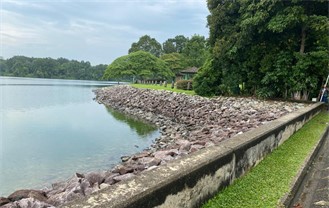
Rapid urbanization has led to increased exposure to a wide range of microbial and chemical emerging contaminants (ECs) in the environment that threatens human and ecosystem health. Our research addresses safeguarding water quality through detection, surveillance and modelling of ECs in surface waters and the urban water cycle.
Over the past decade, our team has built an extensive knowledge base of ECs in local waters through longitudinal chemical and microbial surveillance data. The main microbial contaminants of focus include opportunistic pathogens, antibiotic resistant bacteria, enteric viruses as well as toxigenic cyanobacteria and species that produce off-flavour compounds that may be found in freshwater and marine impacted sites. Consumer and healthcare products, pharmaceuticals, disinfectants, cyanotoxins, and other organic pollutants that have harmful eco-toxicological and human health effects with the ability to persist in water bodies, have likewise been monitored and has resulted in the development of a toolbox of targeted emerging chemicals identified to act as chemical markers for diffusive sources of pollution in urban surface waters.
A key research output is the development of environmental models and predictive frameworks, which aim to simplify complex environmental phenomena into accessible decision-making tools. Environmental monitoring and laboratory-based experiments are carried out to provide insight into bacterial community responses to environmental changes. Urban pollutants are crucial factors that trigger the growth of pathogenic bacteria and the proliferation of antimicrobial resistance traits. This information is consolidated within modelling pathways that are curated and modified to account for the key driving factors of the environment. Prediction models for water quality forecasting, algal bloom events, and risk assessment models (e.g. quantitative microbial risk assessments, antimicrobial resistance risk frameworks) have been developed through Prof Gin’s research, which are essential tools for establishing recommendations and water management policies to mitigate the spread of ECs. This contributes to strengthening Singapore’s self-sufficiency and dependence on scarce water resources.
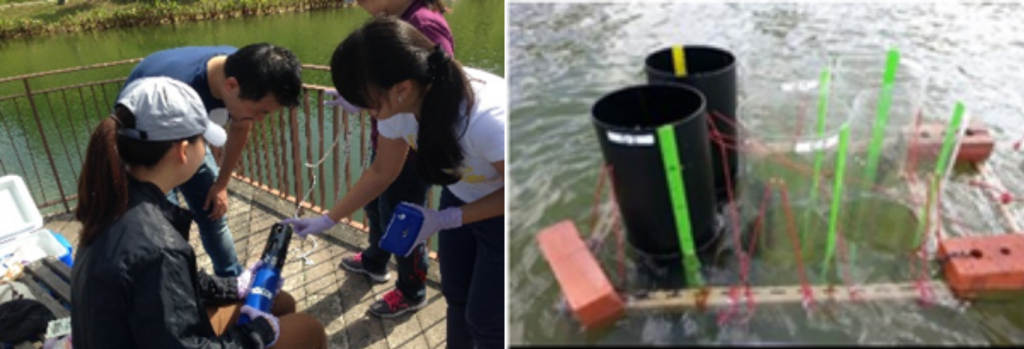
Fig1. In situ monitoring and field experiments to understand the occurrence and transformations of emerging contaminants of concern
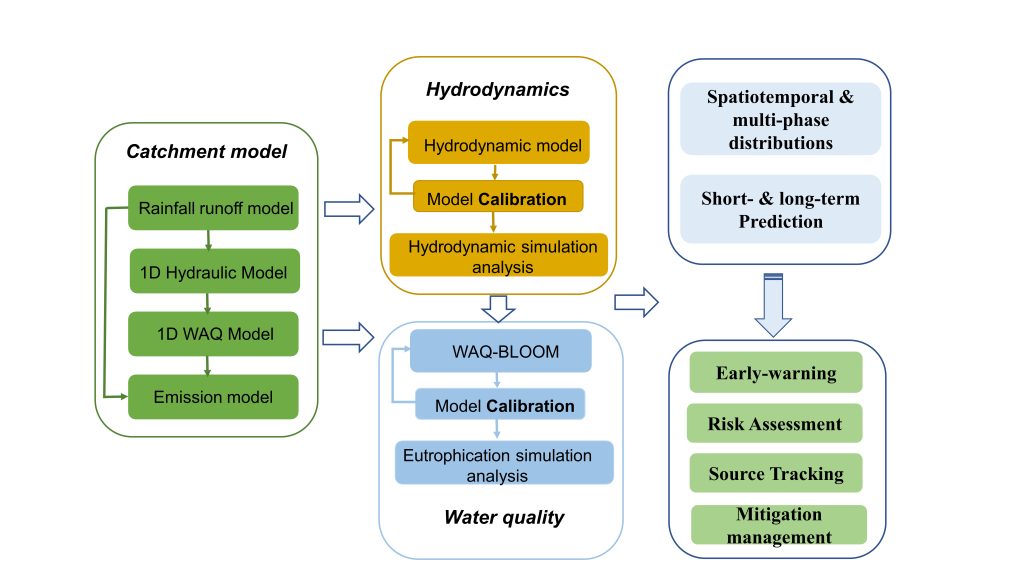
Fig2. In situ monitoring and field experiments to understand the occurrence and transformations of emerging contaminants of concern
Concerns on the accumulation of microplastics in the environment have recently gained momentum and is considered an EC that is prevalent in the worlds’ oceans. The impacts of microplastics on health and the environment is studied through interlinking themes of field surveillance and classification of microplastics along Singapore’s tropical coastline (beaches, mangroves and seawater), modelling the transport and fate of plastics, and evaluating the ecotoxicology through model marine organisms (i.e. green mussels).
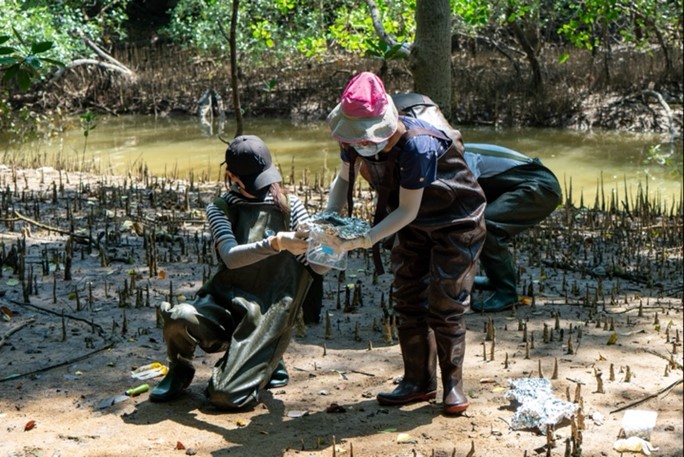
Fig3. Researchers conducting microplastics field sampling work at a mangrove
In line with the recent outbreak of the global pandemic of COVID-19, our research team is in collaboration with NEA and NERI on a sewage based surveillance programme aimed at detecting SARS-CoV-2 fragments in wastewater as well as other chemical markers within the NUS community. Using autosamplers deployed throughout the campus, this non-invasive monitoring strategy has complemented swab and clinical testing operations in confirming suspected Covid positive cases on campus. This wastewater epidemiological approach provides the opportunity to track other human associated viruses and ECs of concern.
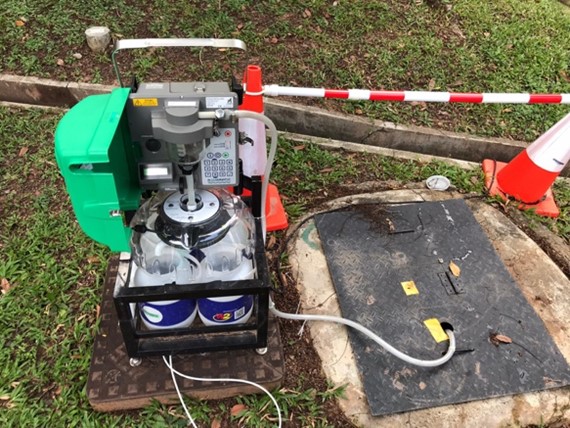
Fig4. An autosampler deployed at a manhole on NUS campus
As Singapore becomes more globalised and urbanised, water safety and sustainability together with public health will be forefront challenges faced by the nation. Ongoing research at our lab is helping to builds knowledge base and modelling tools for preparedness to mitigate EC that pose future risks.
For more details, please contact:
Assoc Prof Karina Gin Yew- Hoong
Email: ceeginyh@nus.edu.sg
| https://nus.edu.sg/neri/research/environmental-surveillance-treatment/ |

